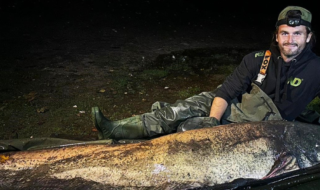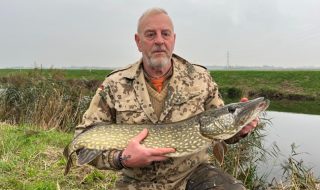The Angling Trust’s Mark Owen represented the European Anglers’ Alliance at a seminar at the European Parliament in Brussels on Tuesday 24 January to discuss the management of invasive alien species.
On behalf of UK and European anglers, he urged the European Union to develop policies to control the spread of invasive species such as signal crayfish, floating pennywort and zebra mussels.
European hunters, anglers, landowners and conservationists met to share best practice and identify action plans to tackle invasive species as part of the EU Biodiversity Strategy 2020. The meeting was chaired by MEP Robert Sturdy, and included speakers from the European Anglers’ Alliance (EAA), the European Squirrel Initiative (ESI), the Australian Embassy, the European Landowners Organisation (ELO) and FACE. The European Commission’s Valentina Bastino and several MEPs also attended.
Invasive Alien Species, can out compete and devastate fisheries and other wildlife, and have been recognised as one of the major threats to global biodiversity and their control is addressed in both the Global Aichi Targets and the EU 2020 Biodiversity Strategy. As part of this commitment the EU is currently exploring options for EU policies to deal with the issue of Invasive Alien Species. It is important that anglers have the opportunity to make their views heard at this early stage in the process.
Robert Sturdy MEP said: “Invasive Alien Species are not only clear and present dangers to European biodiversity, their effects are felt by our rural communities and it is thought that they cost the EU billions of Euros every year. It is very important that we recognise the scale of the threat and deal with it accordingly.”
Mark Owen of the Angling Trust, representing the European Anglers’ Alliance at this meeting said: “Invasive Alien Species are one of the biggest threats to angling we currently face. Angling is a sport that is enjoyed by 25 million anglers throughout Europe and generates 25 billion Euros a year for the economy. We desperately need politicians to take this threat seriously and act accordingly in partnership with anglers.”





